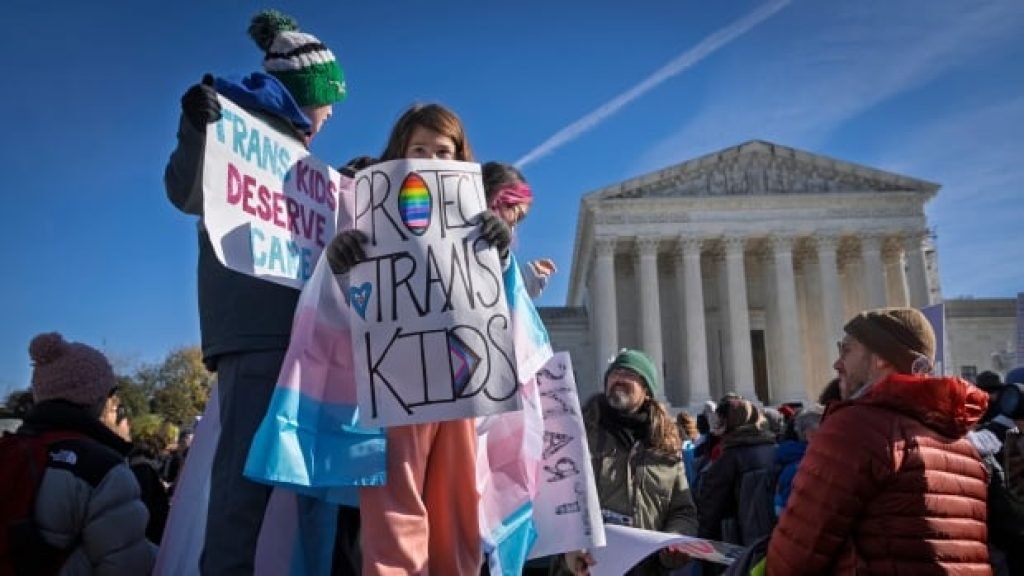
The highest court in the United States is set to decide whether a statewide ban on gender-affirming medical care for minors is unconstitutional. The landmark case could have major consequences for transgender people across the country — and not just when it comes to their health care.
Here’s what you need to know.
What is the case about?
The case, United States v. Skrmetti, centres around a law in Tennessee that bans gender-affirming medical care for minors under 18 — treatments like puberty-delaying medication, hormone therapy and surgeries to treat gender dysphoria, which is the distressing feeling people experience when their gender identity isn’t the same as the sex they were assigned at birth.
Under the Tennessee law, which passed last year, medical providers who administer those treatments can be sued, fined or otherwise professionally punished.
What is the court deciding?
The justices are being asked to rule on whether the Tennessee law violates the U.S. Constitution — specifically the equal protection clause of the 14th Amendment — by making distinctions based on sex. They are not ruling on the issue of medical treatments for transgender minors itself.
The U.S. Supreme Court is set to hear arguments in a major transgender rights case testing whether a Republican-backed ban in Tennessee on gender-affirming medical care for transgender minors violates the U.S. Constitution.
Is Tennessee the only state with that kind of ban?
No. A wave of conservative state lawmakers have approved similar policies across the country in the last few years, but the one from Tennessee is the only one being examined by the U.S. Supreme Court.
Why is this such a major case?
It’s the first time the country’s highest court will rule on a state ban denying gender-affirming medical care for youth. It’s also only the second time in four years that the court has had to decide the extent to which federal law protects transgender people from discrimination.
The Biden administration’s top Supreme Court lawyer warned that a decision siding with Tennessee could be used to justify nationwide restrictions on health care for transgender minors. A ruling against Tennessee, on the other hand, could open the door for challenges against similar policies in other states.

It might also go beyond health care. The ruling could impact efforts to regulate other aspects of transgender Americans’ lives — like sports competitions they can join and which bathrooms they can use.
What is the makeup of the court?
Six of the nine justices are conservative, with three having been appointed by president-elect Donald Trump when he was in the White House from 2017-21. During the presidential election campaign, Trump and his allies promised to roll back protections for transgender people.
After hearing arguments for two hours on Wednesday, the court seemed likely to uphold Tennessee’s ban. The three liberal justices appeared inclined to agree with the challengers, but they do not hold enough seats to sway a decision.
When will the justices make their decision?
A ruling is expected by the end of June 2025.





